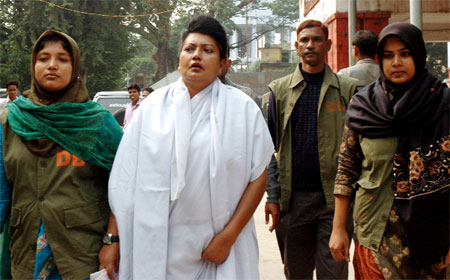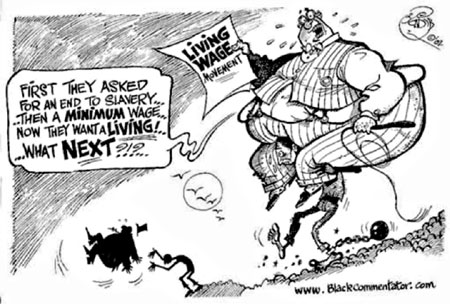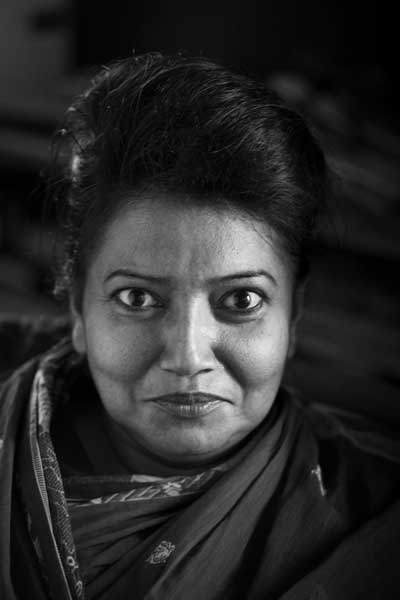Subscribe to ShahidulNews
Moshrefa Mishu,?illegally arrested and remanded.
By Rahnuma Ahmed

I have known Moshrefa Mishu for the last 25 years.
Since the mid-1980s when the two of us had participated in long and intense discussions with other representatives of both large womens organisations and small womens groups, when we were trying to work out the possibility of forming a broad-based and united platform to collectively struggle and further the interests of women.
In the early hours of 14 December 2010, Mishu, who is the president of Garment Workers Unity Forum, was picked up from her house in Kola Bagan, Dhaka, by a contingent of a dozen or so in plainclothes (excepting one). They claimed to belong to the Detective Branch. They did not have an arrest warrant. Please remember that, as you read along.
She was produced in the Chief Metropolitan Magistrate’s (CMM) court after midday. Police sought a 10-day remand, the magistrate granted 2 days. She was accused of inciting garment workers at Kuril who were, according to news reports, demonstrating for payment of wages according to the new pay scale agreed upon by the government and factory-owners in August 2011. Demonstrating for, not against, and mind you, the government was a party to the agreement. Does it not strike you as strange that workers should have to demonstrate and picket, and to press for demands which are in effect, also the government’s demands? (workers had unwillingly agreed to the new wages because it fell far short of their demand for 5,000 taka as minimum wage, not the 3,000 taka which was agreed upon, which has been termed `poverty wages’). Workers at Kuril alleged that the management was not following the new wage board, it had added only 500 taka to each worker’s wage. Remember Kuril too, because I’ll come back to this later. Instead of imprisoning garment workers and their leaders, one would have thought government officials and factory-owners would be arrested for not complying with the wage board’s settlement.
She was remanded again, for 1 day, on December 17. The police added another allegation to their previous list, Mishu had been seen in the company of a Jamaat leader, travelling in his car. Where? When? Not surprisingly, the police could not substantiate their allegations, they could only insist that it needed to be investigated.
Mishu was produced in CMM court for the third time on December 19, afternoon. I was among a group of activists (university teachers, writers and a lawyer) who had gone there to express our moral support for Mishu. Only Sadia Arman among us was allowed to enter the courtroom as she’s a lawyer. She spoke to Mishu who sat in a bench at the back, with women police on either side. She was breathing with great difficulty, gasping for air as she spoke. She told Sadia that short of beating her, the DB police had tortured her in every possible manner. When Sadia asked her about the allegations against her, Mishu said, she had not been in Kuril but in Narsingdi, she had returned to Dhaka on 12th night, had been exhausted and had declined to attend programmes till December 16. She did not know why she had been arrested, they had not told her anything. Please note that the protests at Kuril occurred on 12th morning and that the allegations against her are not, according to the laws of the land, worthy of a remand.
We caught a glimpse of Mishu as she left the courtroom heavily surrounded by police. I watched a young policewoman flash a smile as she said confidently, oh, there’s nothing wrong with her. She’s fine. As we turned the corner of the courtroom and stood above on the landing, we watched Mishu climb down the stairs assisted by policewomen. We could clearly see that she was unable to walk by herself. I remembered an Indian feminist friend’s excitement when Sheikh Hasina appointed Sahara Khatun as the minister for home affairs. I had not been similarly excited. The proof of the pudding is in the eating, I thought.
Mishu’s breathing difficulties increased, she had to be hospitalised immediately. She was taken to the National Hospital first, where the doctors gave her a nebuliser and oxygen. Her back pain — from a spinal injury, the result of an attempt on her life several years ago which had been staged to appear as a road accident — increased tremendously. While she had entered the hospital sitting in a wheelchair, she had to be carried out on a stretcher. She was referred to the Post Graduate hospital where doctors provided further oxygen, she was then referred to the Dhaka Medical College Hospital. She lies in a `bed’ there, in a womens ward, hastily put together on the floor, as there were no vacant beds. Police surround her bed, both men and women, causing immense distress and embarassment to both Mishu and other patients, many of whom are confined to their bed and having to use bedpans for urinary and fecal discharges.
What induced this? Mishu was without medicine for more than 24 hours, the contingent who had gone to pick her up had only permitted her to change her clothes. Despite being a chronic asthma patient, she was forced to lie on the cold floor of the DB Headquarters with only a thin blanket to lie on, and a thin quilt as cover. By the time her sister was allowed to drop her medicine at DB Headquarters, she was already very ill,
the nebuliser was unable to provide any relief. She would have preferred a prison, she told her sister, as she would at least have some hours to herself, at the DB HQ she was interrogated at all odd hours, both during the day and at night.
What is equally worrying is that officials at the DB headquarters had told her sister before the court hearing on December 19, don’t worry, we’ll provide her with some hot water tomorrow so that she can take a bath. How could they have been so sure that their prayer for a remand would be granted? Is unseen pressure being applied by the government on the judicial process?

A garment worker had explained to a Reuters correspondent that the reason for protesting was “because [the new wages are] too inadequate to make ends meet. We cannot submit to the [whims] of the government and factory owners.” Another had said, “We work to survive but….commodity prices are going up and we cannot even arrange basic needs with our meagre income. The 3,000 taka will be barely enough to buy food for my six-member family. How can I pay for medicines, the education of my children and other needs?” Nurul Kabir, the editor of this paper, in a talk show on a private TV channel the night Mishu was arrested, had said, he would like to give factory owners Tk 3,000 per month, for a period of three months, and would like to see how they managed to live on this meagre amount. I agree with him, I think such an exercise, conducted publicly, with daily updates, would prove to be tremendously educational.
Or, one could reverse what the Italian Marxist Antonio Gramsci, imprisoned from 1926-1937 (the prosecutor had said at his trial “for 20 years we must stop this brain from functioning”), had written to a family member, from prison: “tell me what the following categories of people eat in a week: a family of,
- day labourers
- sharecroppers
- small farmers who work their own land
- shepherds whose flocks are a full-time occupation
- craftsmen (cobblers or blacksmiths)
Questions: how many times do they eat meat in a week, and how much? Or alternatively, do they just go without? What do they use to make soup? How much oil or fat do they put in, how much pasta, how many vegetables etc.? How much corn do they grind, and how many loaves of bread do they buy? How much coffee or coffee substitute, how much sugar? How much milk for the children etc.?”
Reversing Gramsci’s questions would mean that I would like to know how many times a week the owners of garment and knitwear factories?those who receive orders, and deliver supplies to Wal-mart, Marks & Spencer, Carrefour, Tesco, JC Penny, H&M, Gap?eat meat, how much oil and butter they consume, how much rice, what quality, how much coffee and beverages they drink, how much they spend on medicine and health, on their childrens education, on holidays, and all other personal and familial needs. I would also like to know how much they contribute, both directly and indirectly, to the election funds of political parties.
At her first court hearing, Mishu had stood in the dock and had asked, `Am I a common criminal that I should have to be handcuffed like this?’
No Mishu, neither you, nor other labour leaders, nor workers demonstrating for living wages, none of you are criminals. Those denying living wages to garment workers, are. It is they who are criminals. Your struggles serve to expose them for what they really are underneath their smooth and slick smiles, their expensive clothes. Petty, miserable, brutal. The real criminals.
Published in New Age, Tuesday December 21, 2010
Support campaign for release of Moshrefa Mishu

